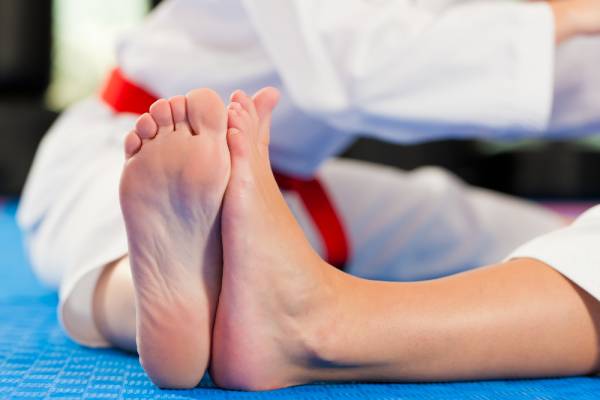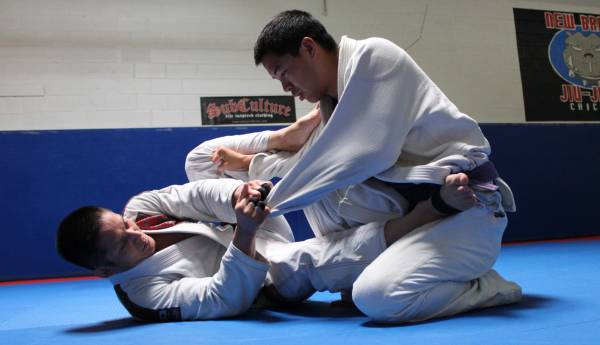What do Gray Cook, Kelly Starrett, and Dan John all have in common? They believe in the power of assessments and establishing baselines. Kelly Starret uses the ten-minute squat test, while Gray Cook uses the Functional Movement Screen to assess an athlete’s state of readiness.
While each of those great coaches might use different methods to improve movement, they all agree on the importance of establishing a standard.
RELATED: Exposing The Importance of The Functional Movement Screen (FMS)
Kelly Starrett talking through the ten-minute squat test with Super D.
The Importance of Assessment
If some of the greatest coaches around believe in the importance of assessment, why is it that most coaches and athletes do not perform an assessment? It may be due to a lack of time or knowledge, but that is not an excuse. A self-assessment does not have to be time consuming or complicated. All it needs to be is specific for you.
“Every morning is an opportunity for you to check in with your body and take an inventory of what is going on.”
You know your body better than anyone. Every day your body tells you important information. Yet most of the time, we choose to ignore this information. Instead of ignoring what your body is saying, use it to manage your training.
Every morning is an opportunity for you to check in with your body and take an inventory of what is going on. The key is asking it the right questions.
RELATED: Listen to Your Body for Fewer Injuries and Greater Progress
Determine a Grading Scale
Before we start with the questions, first determine a grading scale you will use to answer each question. Here are two examples:
- The numbers one through three, with a score of “one” being bad and “three” being great.
- The colors red, yellow, and green. With “red” being the worst score and “green” being the best.
The names and numbers do not matter just pick something you can stick to and that has three options. You’ll also need a journal where you record all your daily scores. Use either electronic or paper. What matters is that you keep your journal regularly, not what format it is.
Now that you have your scoring system and journal, we move on to your daily questions. You should ask yourself these questions every morning.
1. How Is My Mood Today?
Are you normally a happy person but today you feel down or sad for no reason? A lot of people do not make the connection between training and mood. The day after a hard training session, you may notice your mood changes for the worse. Some athletes feel on edge all the time or irritable. Everyone is different.
RELATED: Too Much BJJ Can Be a Bad, Bad Thing
A training session executed with the appropriate amount of volume and intensity can have the opposite effect on mood. You may feel happier than usual or that you are thinking more clearly. Make a note of any changes in your mood compared to a typical day.
2. How Is My Body Feeling?
We all have those days when we wake up and feel stiffer than usual. Or you feel discomfort in a part of your body that does not normally give you problems. These are all signals that need to be listened to.

3. How Is My Energy?
Describe your overall energy level. Do you feel rested and recovered or do you feel drained and tired?
RELATED: Why Does BJJ Make Me So Tired?
4. How Stressed Am I?
Rate your level of stress. Everyone experiences some forms of stress. It’s the days you feel more stress than usual that cause problems. On the days you feel that additional stress, cutting back on your training might be a smart idea.
5. How Am I Moving Today?
Some days it is easy to see how poorly you are moving. You may feel fatigued just going up and down stairs. Other times, it is not as obvious.
“If you normally have no problem doing a get up, but today you are struggling, then it is a good idea to scale back your training or take the day off.”
To best answer this question, pick three movements specific to your sport. For Brazilian jiu jitsu, I use the hip escape, bridge, and get up. Perform a few repetitions of each movement you’ve chosen and see how you feel. If you normally have no problem doing a get up, but today you are struggling, then it is a good idea to scale back your training or take the day off.
Using This Information to Your Benefit
The hard part is learning how to use this information to your benefit. Everyone is different when it comes to tolerance. Some people do one hard training session and are fatigued for days. Others can train hard and bounce right back.

Before you get to the academy, you should already have a good idea of your body’s status from the morning’s journal entry. If you decided that training was in your best interest, base your training off your body’s level of readiness based on your scoring system.
RELATED: Coaching Tip: The Importance of Journaling
You should have three different training plans in your head:
- One to be used when you are feeling good. For BJJ, this probably means going to the academy and rolling hard or doing a competition-level class.
- On the days you score in the middle ground, you should attend a class that allows for more technique and positional drilling.
- On the days that you red-light yourself, you should go home and rest.
Conclusion
Proper management of your training volume and intensity will help prevent injuries and keep you on the mat longer. To ensure you are training with the right intensity and frequency, establish your own personal assessment standard that includes lifestyle factors and BJJ-specific movement standards.
Photo 1 courtesy of Shutterstock.
Photos 2 & 3 courtesy of Ana Nieves.






